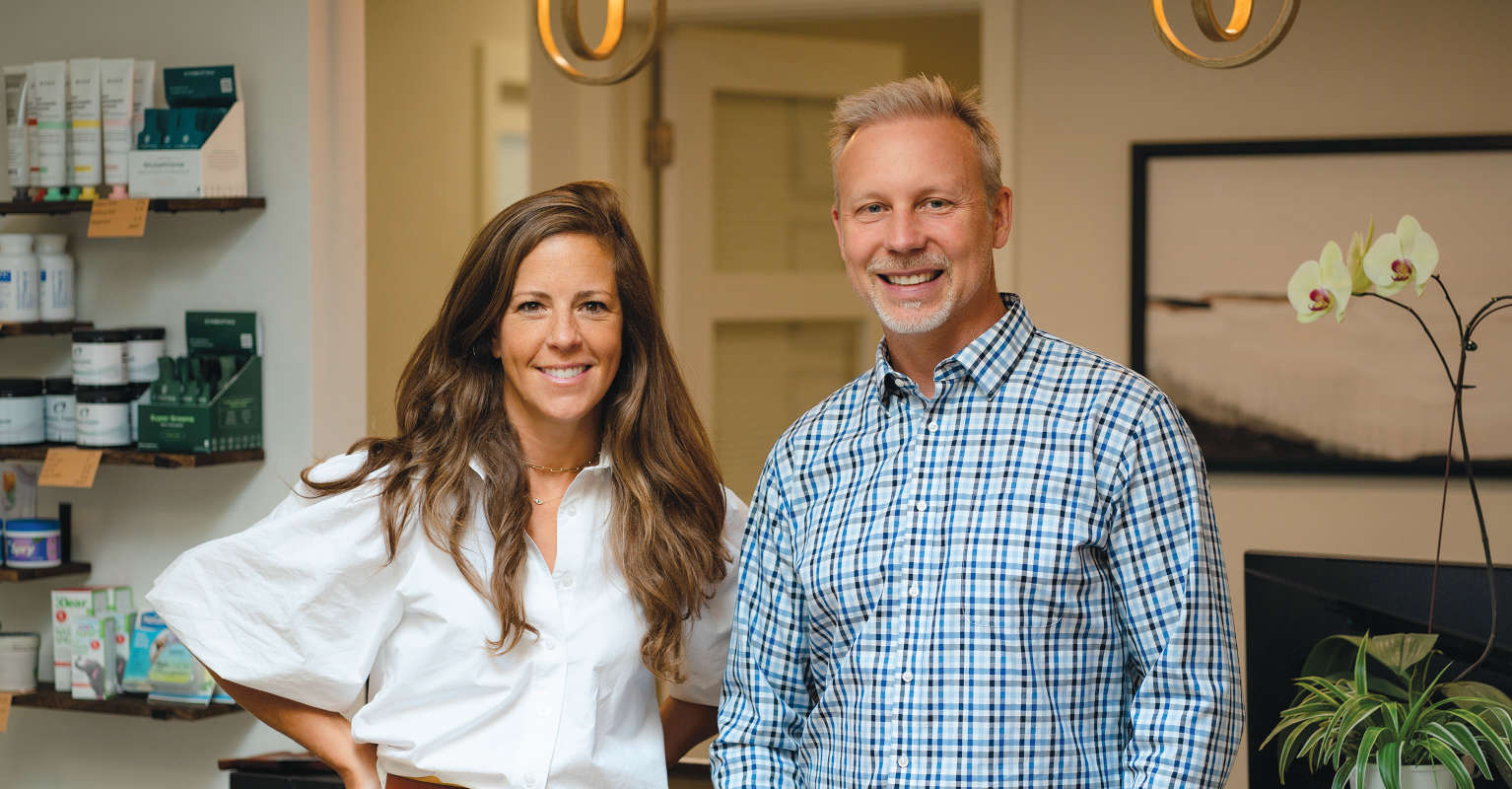From the harvesting of herbs to attending to the mischievous tribe of goats, Nichole Croteau Baker’s tasks as the owner of Lazy Daisy Soap Company could be considered a way of life, a fully inclusive existence, rather than a job. Indeed, within the routine and the means, there is a consuming cinder that lights her energies.
While Croteau Baker describes herself as organically inquisitive and says that as a kid, she liked to make her own soaps and face wash, her own bouts with cancer galvanized the resolve to generate skin products that were simple, healthful, and transparent.
In 2002, Croteau Baker was diagnosed with thyroid cancer at age 22. Despite a battery of chemotherapy and radiation treatments, the cancer reemerged even more aggressively in 2008, which led to the removal of her thyroid and parathyroid glands. Her mother suff ered from thyroid cancer, too, chemical exposure suspected as the cause.
“Most often thyroid cancer isn’t hereditary, it’s an environmental issue,” Croteau Baker says. After assessing the skin care products she used, she decided to create a minimally processed line of goat soap and lotion products.
Since then, Lazy Daisy Soap Company has focused on natural, whole, and non-cost-prohibitive skin care, lovingly made to satisfy small-batch requirements. Croteau Baker utilizes a wide range of homegrown herbs, such as rose petals and rose hips from the banks of the Missouri River, as well as hops, calendula, lavender, eucalyptus, safflower oil, and juniper berries. Other ingredients, like honey, are sourced from as nearby as workable, and she incorporates oils from almonds, coconut, avocado, and shea butter.
“Your skin is a filter, and it’s an important organ to protect,” Croteau Baker says. “Your skin is exposed to everything, from the chemicals in your jeans to your laundry detergent. Even though it’s our largest organ, we tend to forget about it. Commercial skin care products, sadly, are terrible for your health and for your skin.”
Croteau Baker, her husband, and their trip of Nubian goats have resided in the itsy-bitsy community of Clarkston north of Three Forks for more than six years. The couple initially met in Bozeman, and before coming to Clarkston they lived for approximately eight years in Seattle, where they owned goats and a farmhouse within the city.
Croteau Baker and the goats have synchronized swimmingly over the years, the animals impressing upon her as socially and domestically akin to black Labradors: endearing, attention-starved, yearning for steady praise, aff ection, and love. In this, she has come to love them for not just their shamelessly needy ways, but for their swirling range of rambunctious and playful emotions.
“Goats are good at problem solving, and things such as opening the slide bolts on doors and getting out. We’ve put carabiners on the exits because of them,” she says. “They each have their own individual personalities and each one of them has their individual favorite vegetable or place to be scratched. Some like to be brushed or petted or chased.”
Croteau Baker has also come to respect and tout the healthy, protein-crammed milk from her bleating, babbling group of goats. “Goat milk proteins are really small, which makes it easier to digest; even if you are lactose intolerant, you can probably tolerate goat’s milk. Goat milk proteins are a quarter of the size of a cow’s protein. It has tons of vitamin B, calcium, lactic acid. It can permeate into the skin and heal it from the inside out.”



